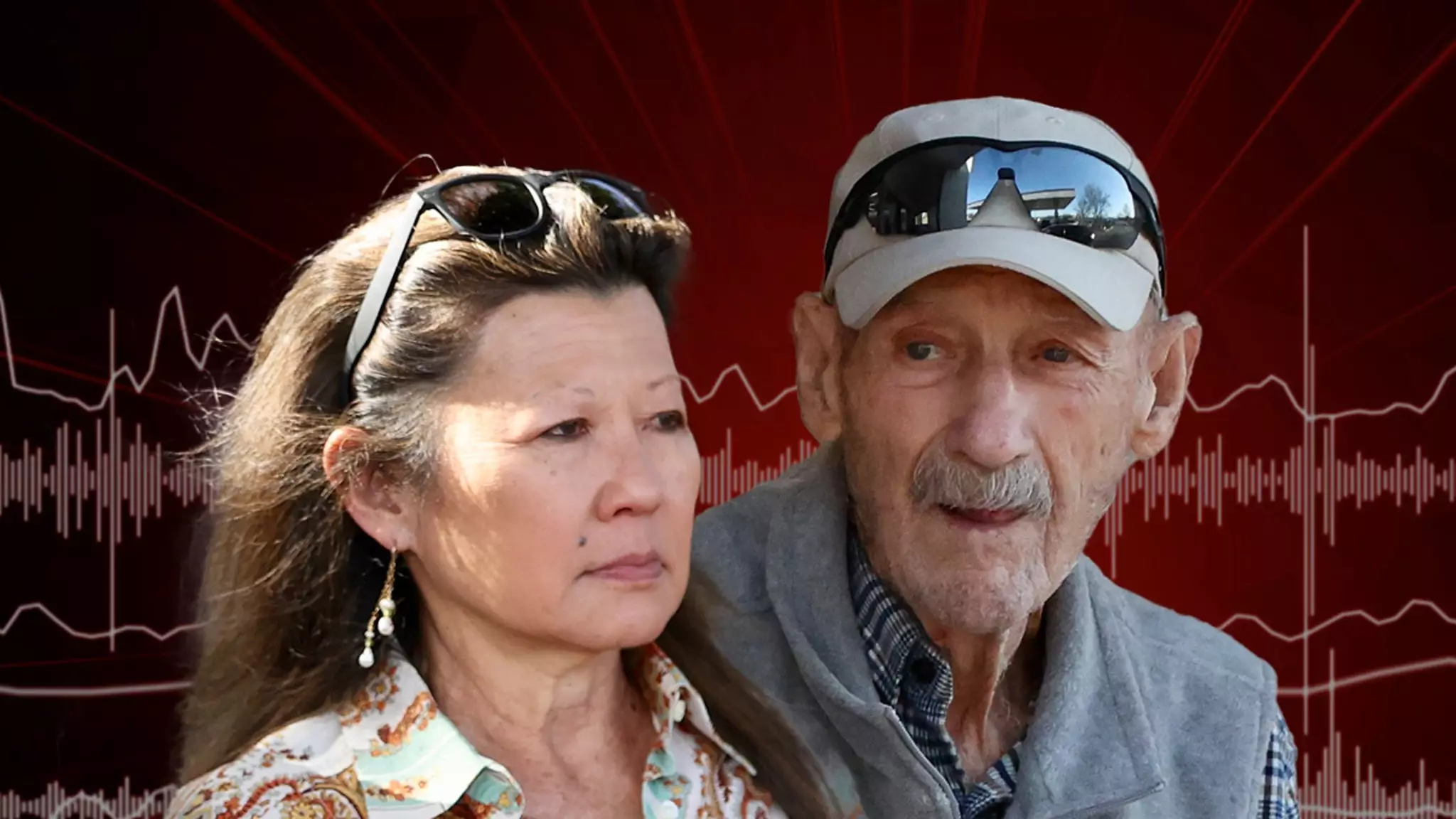In a heart-wrenching incident that has left fans and loved ones in shock, the legendary actor Gene Hackman and his wife, Betsy Arakawa, were found deceased in their Santa Fe home. The news, which broke late on a Wednesday afternoon, revealed that a 911 call triggered the discovery of their bodies, painting a picture of confusion and grief for the caller. As details surfaced about the circumstances that led to this tragic event, the incident prompted deeper inquiries into the realities of aging, health, and the vulnerabilities that accompany them.
The frantic audio of the 911 call obtained by TMZ showcased the emotional turmoil faced by a caretaker, whose name remains anonymous. He reported the shocking situation, unsure whether he had encountered “one or two dead bodies” inside the Hackman household. His plea for help was underscored by a palpable sense of disbelief and sorrow. The repeated expression of “Damn” highlighted the gravity of the moment, as the caller struggled to provide answers to the dispatcher’s probing questions regarding the identities and conditions of those within the home. This emotional response draws attention not just to the immediate circumstance but offers insight into the broader link between aging, loneliness, and the challenges faced by the elderly.
What authorities uncovered upon their arrival was both troubling and perplexing. Initial investigations revealed the front door of the residence ajar, alongside concerns raised by sheriff’s deputies regarding the wellbeing of several pets in the home. The notation of a healthy dog running freely on the premises, combined with another canine’s close proximity to Betsy’s body, exacerbated the mystery surrounding the couple’s final moments. Moreover, the discovery of a deceased dog a short distance away raised questions not merely about the couple’s health but also about their living conditions and care leading up to their deaths.
The context surrounding these findings deepens when considering the specifics noted by detectives. The search warrant application described a chaotic scene: scattered pills, a space heater seemingly repositioned, and signs that suggested Betsy may have suffered significant physical decline prior to her passing. Coupling these findings with the absence of apparent gas leaks highlights a series of tragic circumstances that could indicate a broader issue in monitoring and maintaining health for aging individuals.
The World Remembers Gene Hackman
Gene Hackman, a cinematic titan renowned for a plethora of memorable roles, lived a life defined by talent and hard work. At the age of 95, his passing marks not only the loss of an icon but also serves as a reflection on the complexities of growing older in a society that often overlooks the needs of its aging population. While Hackman enjoyed a long and successful career that garnered acclaim across a span of decades, the realities of his twilight years cast a stark contrast against the backdrop of Hollywood glamour.
As many fans recall his stellar performances in films that have become a part of American cinematic history, it reveals a sobering truth about the often-unseen struggles faced behind closed doors. The news of his demise raises poignant questions around the social responsibilities toward the elderly, notably how family and community can engage more effectively to ensure they feel secure and supported in their longevity.
The tragic passing of Gene Hackman and Betsy Arakawa serves as a somber reminder of the vulnerabilities that accompany age and the perils that can obscure our loved ones’ well-being. As authorities continue to investigate the sequence of events leading to this heartbreaking incident, it is crucial to foster dialogue on the importance of monitoring the health and living conditions ofour aging population. This situation, marked by raw emotion and unforeseen tragedy, begs society to confront the pressing issues surrounding elder care compassionately and resolutely. In reflecting on this tragic event, may we find ourselves emboldened to ensure that aging individuals within our communities receive the care and dignity they rightly deserve.

